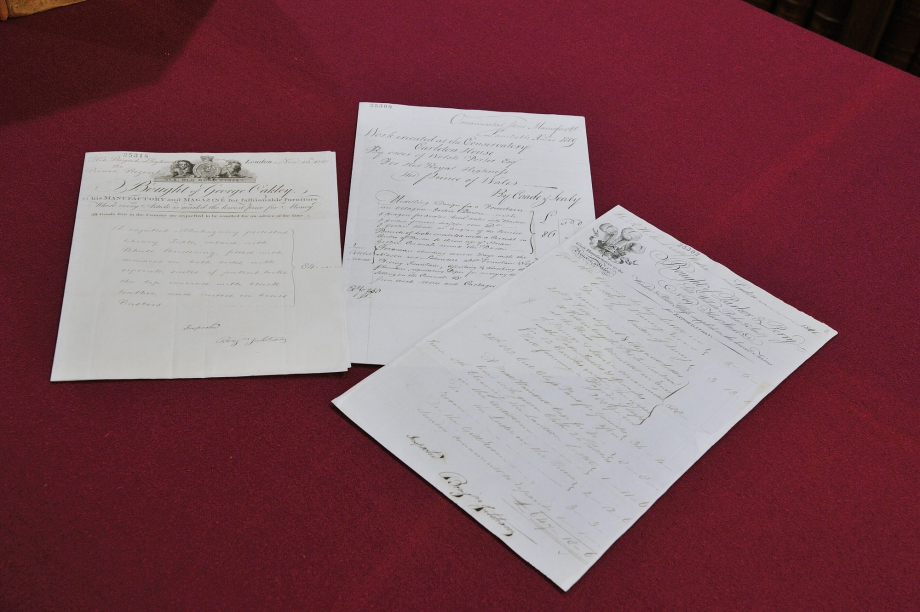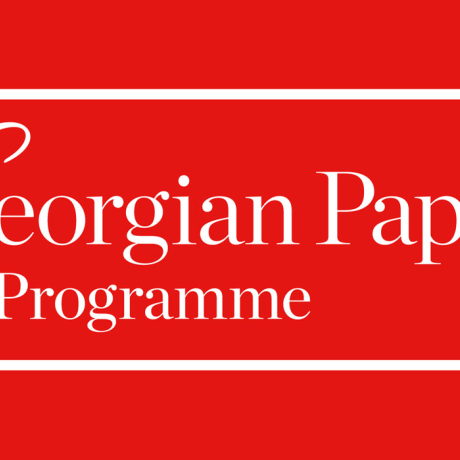The Georgian Papers Programme (GPP) presents a new online website where people will be able to access documents which provide a unique window into the life and times of the period, including the reign of King George III.
There is a remarkable 350,000 "Georgian papers", 85 per cent of which have never been published. Papers from Kings George I, George II, George IV and William IV will also be made available.
Since 1912, the papers have been stored, with restricted physical access, within the Royal Archives in Windsor Castle's Round Tower.

Her Majesty The Queen launched The Georgian Papers Project in April 2015 and gave the partners full authority to increase public access to and understanding of material held in the collection.
It follows the success of the digitisation of Queen Victoria's journals in 2012.
"Her Majesty fully supports the work currently underway to make the historic treasures of the Royal Archives widely accessible to the world through digital technology," Oliver Urquhart Irvine, the Librarian and Assistant Keeper of The Royal Archives said upon launching the GPP website.
"This enables us to open to the many, what was previously only accessible to a few. Seeing original documents is utterly compelling," he added.
You can feel the passion, personality, worries and triumphs of individuals who have shaped major events. It can change your perspective on history.
Now, the first 33,000 of those papers have been digitised including many letters between King George III and his government of the day, as well as many of his essays on subjects such as despotism and the war in America.
Amongst the items include intimate letters between The King and Queen Charlotte, which will be available around the world to the general public, historians, students and academics.
The Georgian Papers Programme (GPP) is a partnership between Royal Collection Trust, lead academic partner King's College London and international participants, including primary U.S. partners the Omohundro Institute of Early American History & Culture and William & Mary.
Other key American institutions which have partnered with the programme include the Library of Congress, Mount Vernon and the Sons of the American Revolution.
A BBC Two documentary called George III – The Genius of The Mad King will be broadcast at 9pm on Monday, January 30 which follows academics from King's College London and the Omohundro Institute eagerly opening boxes of papers never before properly explored.
Sir Simon Wessely, President of the Royal College of Psychiatrists and Regius Professor of Psychiatry at King's College London, told programme makers that we may never know exactly what was wrong with George III.
He suggests it may have been hypomania, but breakdowns often came amid turmoil at home, including the premature death of his youngest daughter Princess Amelia from tuberculosis.
Arthur Burns, Professor of Modern British History at King's College London and Academic Director for the Georgian Papers Programme at King's, says that the papers reveal how George III's exercise of Kingship reflected his strong sense of commitment to the nation and both self-examination and serious reflection on what it mean to be a 'good King'.
Andrew O'Shaughnessy, Professor of History at the University of Virginia and the first of five visiting Sons of the American Revolution GPP Professors to visit Windsor, said the papers reveal George III's "voracious interest" in every detail of the war in America, from how many soldiers and blankets were required, to recording every detail of the French fleet, including canons, in his own hand.
There is an ambition to digitise the whole collection of papers by 2020.
Find out more about the Georgian Papers Programme and explore the papers for yourself on the Royal Collection Trust website.



